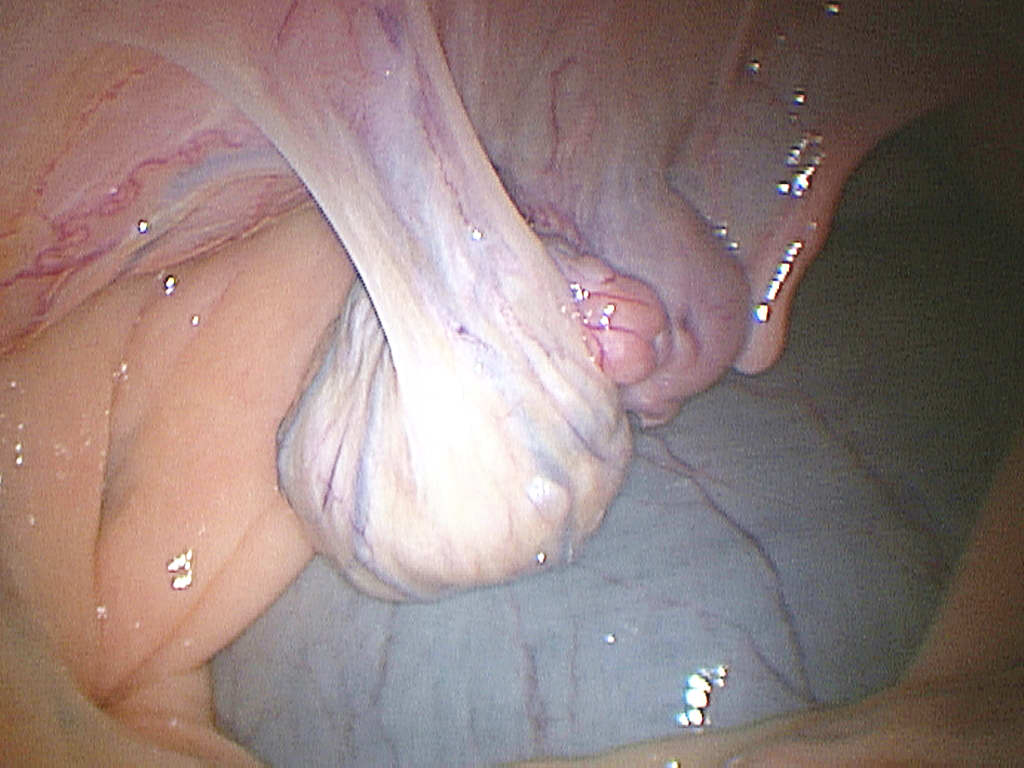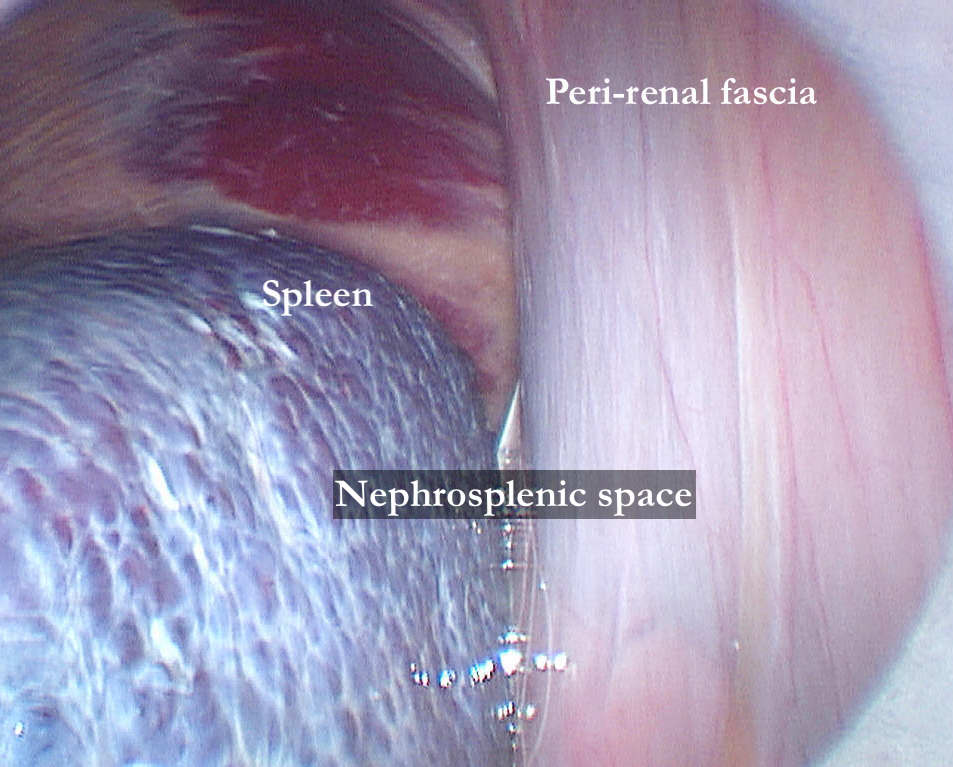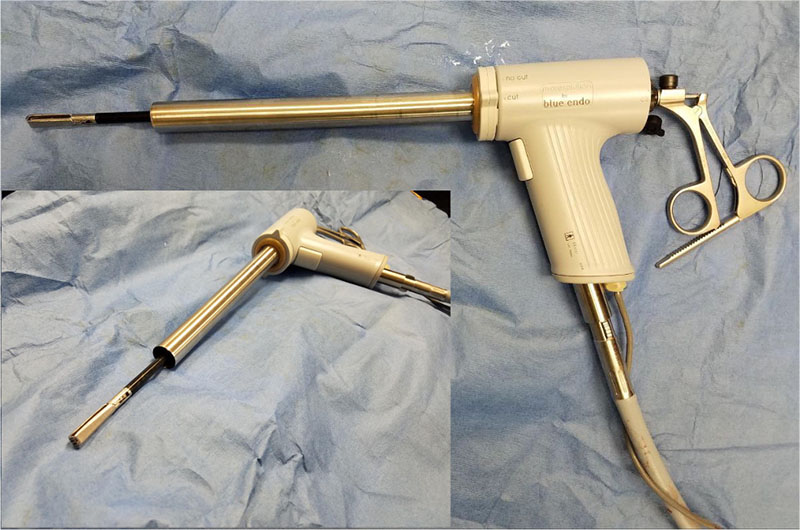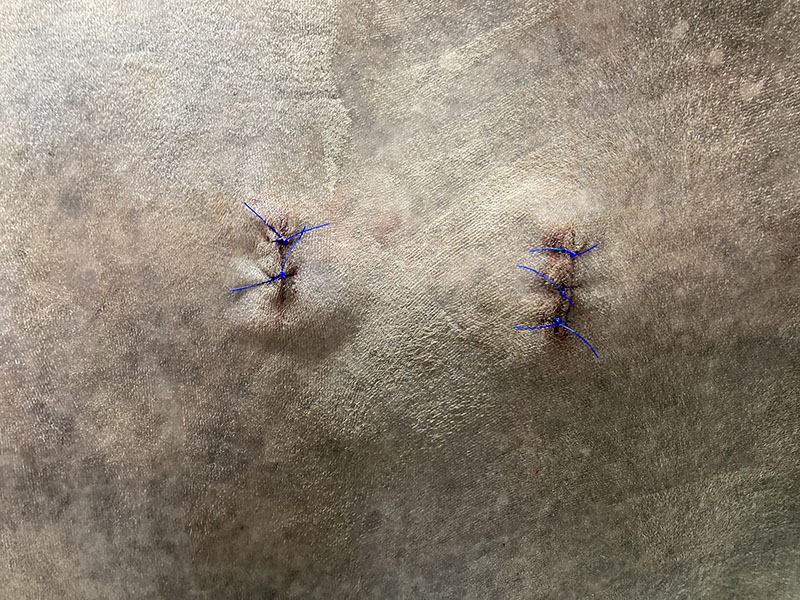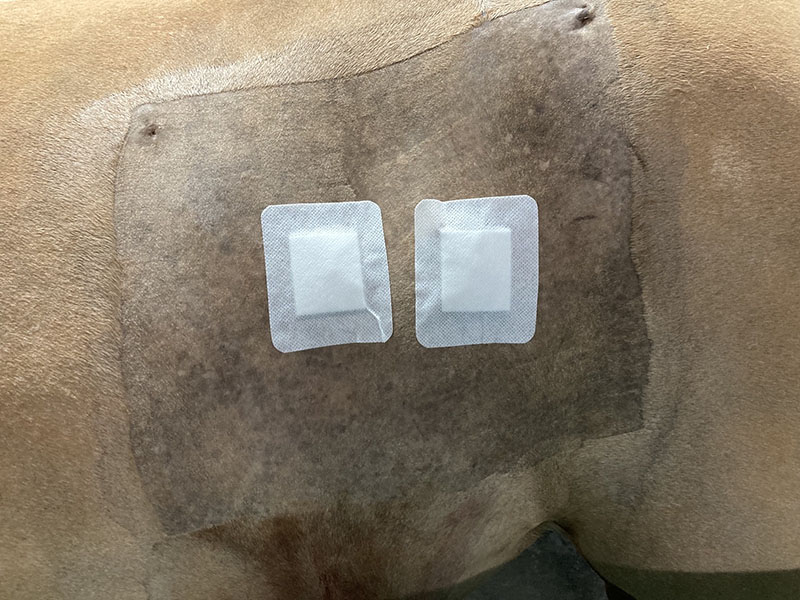Laparoscopy
Laparoscopy is one of our specialties at Endell Equine Hospital, with our surgeon Andrew Jones, who was trained at a centre known for laparoscopy and has multiple publications himself in the field. Some of the more common procedures are described below.
Prior to laparoscopic surgery, we recommend a feeding plan for a few days leading up to surgery, to reduce the complications and facilitate the ease of the surgery. The feeeding plan can be downloaded here:
Cryptorchid horses (aka rigs):
If a horse does not have 2 descended testicles, generally the missing one is in one of two places - either completely in the abdomen, or high up in the groin (inguinal aka high flanker). These horses get dropped off at the hospital the day before the proposed surgery and an ultrasound exam gets performed, which determines the lcoation of the missing testicle and thus decides which surgery gets performed.
If the testicle is in an abdominal location, a standing laparoscopic surgery gets performed to remove the testicle and the descended testicle is removed as a routine standing castration.
If the testicle is in the inguinal region, the castration is performed under a short general anaesthesia, either through scrotal incisions or inguinal incisions.
Please see our factsheet for more information on rigs:
Ovariectomy:
Ovariectomy in mares can be performed for a number of reasons. The most common would be abnormal (e.g. stallion-like) behaviour, with or without an ovarian tumour. Other reasons may include chronic pyometra, ovarian cysts and population control.
It is not unusual to have a blood test or a reproductive tract scan prior to surgery to determine if there is an abnormality with one or both of the ovaries. However, it has also been found that mares with poor behaviour have a high likelihood (80-90%) of improving with ovariectomy, without abnormal bloodwork or ultrasound exam.
Ovariectomy factsheet (coming soon)
Nephrosplenic space ablation
Horses with recurrent colic can be frustrating to deal with as a horse owner. The nephrosplenic space ablation is a surgery that helps prevent left dorsal dsiplacements of the large colon (aka nephrosplenic entrapment) and is also helpful in other recurrent colic cases.
In cases of recurrent left dorsal displacements, this surgery may be offered to you and while not resolving other causes of colic, this surgery removes the potential space for the colon to move into.
For other causes of recurrent colic, studies have shown this surgery significantly reduces the chances of colic post-operatively and has a high owner satisfaction rate. If your horse suffers from recurrent colic, please call the hospital to discuss this possibility: 01722 710046.
Other laparoscopic procedures
Examples of other laparoscopic procedures that can be performed at Endell:
- Closure of inguinal rings for inguinal hernias
- Uteropexy for poor conformation
- Prostaglandin application for subfertility
Advantages of laparoscopy at Endell
Other than just the experience of laparoscopic surgery here and the normal laparoscopic surgery instruments, we at Endell are currently the only practice in the UK to have a morcellator. A morcellator is a special laparoscopic instrument to remove tissue from inside the body through small cannulas in the body wall. This has 2 advantages, one is the body wall is protected from tissue being dragged through it and secondly even large ovarian tumours or masses can be extracted through just a 2cm long incision. This is great for the horse as they can return to work quicker, they have smaller incisions to heal and the rate of incision-related complications is negligble.
Post-op laparoscopic patients
The pictures below, show how small the incisions after laparoscopic surgery and what you can expect when your horse comes home. For the most common laparoscopic surgeries, the whole surgery is performed through two 2cm long incisions.
Another great advantage of laparoscopy is most horses only have 2 weeks off after surgery, before they can return to full work.
See Andrew's Horse & Hound article about laparoscopy:
